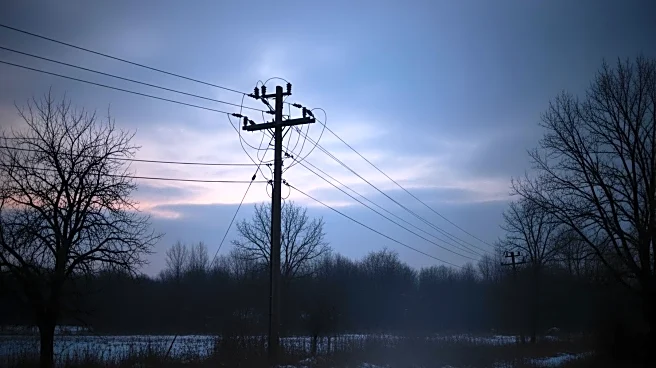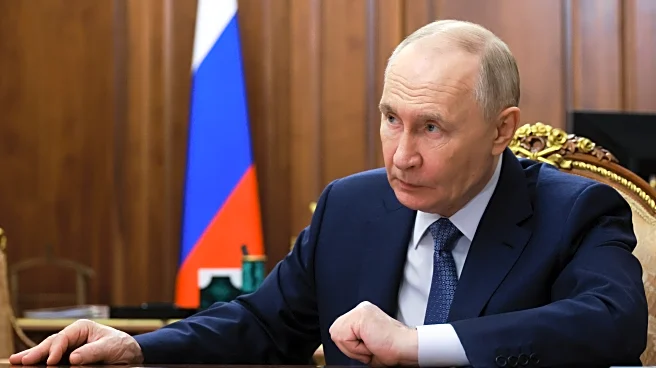What's Happening?
Several major news organizations, including CNN, Reuters, The Associated Press, The New York Times, The Washington Post, The Atlantic, and NPR, have refused to sign new press access rules imposed by the Pentagon. The rules, championed by Defense Secretary Pete Hegseth, require reporters to sign restrictive agreements or face expulsion from the Pentagon. The Pentagon Press Association has criticized the policy, stating it gags employees and threatens retaliation against reporters seeking unauthorized information. News outlets argue that these restrictions undermine the independence of journalism and violate the First Amendment. Some partisan media outlets, such as Newsmax, have also objected to the requirements, calling them unnecessary and onerous.
Why It's Important?
The refusal by major media outlets to comply with the Pentagon's new press access rules highlights ongoing tensions between the government and the press regarding freedom of information. The restrictions could significantly impact the ability of journalists to report on military affairs, potentially limiting public access to critical information about U.S. military operations. This situation underscores the importance of maintaining a free press as a check on government power, ensuring transparency and accountability. The controversy may lead to legal challenges, as media organizations seek to protect their rights to gather and publish information without undue government interference.
What's Next?
As the deadline for signing the new rules approaches, news organizations may face expulsion from the Pentagon, affecting their ability to cover military affairs directly. Some outlets are considering legal action to challenge the restrictions, which they view as unconstitutional. The Pentagon Press Association continues to advocate for press freedom and may engage in further negotiations with the Pentagon to revise the policy. The broader implications for press freedom in the U.S. could lead to increased scrutiny of government actions and policies affecting media access.
Beyond the Headlines
The dispute over press access at the Pentagon raises broader questions about the balance between national security and press freedom. It highlights the potential for government policies to restrict independent journalism, which is essential for a functioning democracy. The situation may prompt discussions about the ethical responsibilities of journalists in handling sensitive information and the role of the press in holding government accountable.











